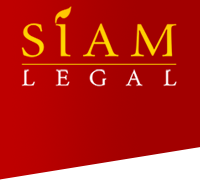How to Own Real Property in Thailand
 Buying real property in Thailand can be a valuable investment for foreigners if you do your homework and make sure to do it properly. When making your plans you need to take into account the limitations on foreign land ownership and Thai tax law.
Buying real property in Thailand can be a valuable investment for foreigners if you do your homework and make sure to do it properly. When making your plans you need to take into account the limitations on foreign land ownership and Thai tax law.
Check our How to Buy Property in Thailand page.
The easiest way to buy property in Thailand is to buy a condominium. Thai law permits foreigners to purchase condominium units in a development that is owned at least 51% by Thai citizens. You must finance your purchase using foreign currency unless you have a Thai Permanent Residence Certificate. Otherwise, you must provide proof that the currency was brought into Thailand and exchanged here. Then you can own the condominium unit in the equivalent of fee simple in your own name in the name of your business.
You may also own land through a corporation, either as a minority shareholder in a Thai company or as a majority shareholder in a foreign company granted landholding privileges by the Thai Board of Investment (BOI).
Companies registered in Thailand with majority Thai ownership are permitted purchase and own land. If you are interested in investing in land development in Thailand, you will need to invest in a majority Thai company. However, using a majority Thai company merely to circumvent Thai law restricting foreign land ownership is illegal. If you are a minority shareholder in a legitimate Thai company you may own real property in Thailand through that company.
Foreign companies may be granted BOI incentives including permission to own land in Thailand. While these incentives are not available for foreign landholding or development companies, they are available for some property intensive businesses like hotels.
If you own a condominium under your name you should be sure to create a Thai will to determine what will happen to the property in case of your death. Otherwise, it will pass on to your statutory heirs according to Thai laws of succession. If you own real property in Thailand through business and you do not live in Thailand, you may be able to pass your shares through a foreign will, however, that will must still be executed in a Thai court with a local executor to handle distribution of the property in Thailand.
Owning real property in Thailand will also have Thai tax consequences.
All rental properties in Thailand are subject to a House and Land Tax, which is 12.5% of the annual rental income. On top of that, the rental income is taxable, and owners will have to pay Thai income taxes on the money. Thai income taxes are calculated using a progressive scale ranging from 0-37% depending on income.
Withholding tax rules will also impact cash flow from rental properties. If you rent the property to a company, that company will deduct 5% of their rent and pay it directly to the government as a prepayment of your income tax. This withholding rule applies if your developer offers a rental guarantee. If you sent the rental income offshore, a 15% withholding tax will apply.
Category: Company Registration, Condominium, Land, Property, Thai Will and Testament, Thailand BOI
About the Author (Author Profile)
Siam Legal is an international law firm with experienced lawyers, attorneys, and solicitors both in Thailand law and international law. This Thailand law firm offers comprehensive legal services in Thailand to both local and foreign clients for Litigation such as civil & criminal cases, labor disputes, commercial cases, divorce, adoption, extradition, fraud, and drug cases. Other legal expertise of the law firm varied in cases involving corporate law such as company registration & Thailand BOI, family law, property law, and private investigation.











